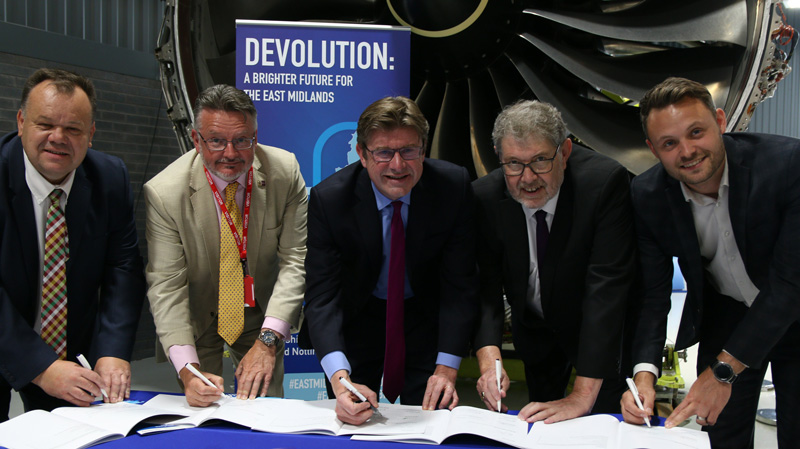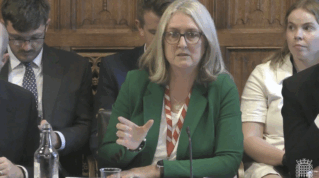The new deal means working closely with education providers to create new career pathways, writes Ben Bradley
On the 30 August, a historic devolution deal worth an initial £1.14 billion in extra investment was signed by Nottinghamshire, Nottingham, Derby, Derbyshire and the government.
This historic deal is a golden opportunity for our region.
For the first time, we’ve brought local leaders together with a shared vision and a united voice, and the work we’ve put in is being rewarded.
The initial investment figures will, in reality, multiply many times over as we seek to attract private sector cash to match our ambitions.
The deal gives us new powers over transport, skills, and the economy. This is crucial for levelling up – it’s the key to bringing in new jobs, and to giving people in our area the skills and connectivity so they can access those jobs.
It will give us the tools we need to keep pace with our neighbours in the West Midlands, which is devolved.
The devolution deal also means we’d have a fully devolved adult skills budget.
For the first time, we could tailor this to the needs of people in our communities and local businesses, helping residents achieve their ambitions and helping employers recruit people with the knowledge and abilities they are looking for.
We can steer further education in our area, to help people train or retrain, get the qualifications they need, and fill current and future skills gaps.
This means working closely with education providers to create career pathways.
West Nottinghamshire College and Nottingham Trent University are good examples of how this works in practice, with collaboration building routes into key jobs – health, in their case – and that’s a model I want to build on.
When the public and private sector work together, they can drive investment and massively impact positive change.
Both sectors need people with the right skills.
Local councils are short-staffed and under skilled in some areas. By working with local providers, we can ensure residents have the skills to access vacancies across public services.
So devolution is great news for public services and for residents in our region.
But perhaps the biggest opportunity is how we can combine private sector investment.
Our devolution deal was launched at Rolls Royce, which provides 20 per cent of our region’s exports, and employs around 9,000 people at its Derby headquarters alone.
Imagine attracting even just one more business like Roll Royce to our area.
Imagine attracting just one more business like Rolls Royce here
With improved public transport links and targeted training around a business like that, we can give our communities life-changing opportunities.
There are other promising things on the horizon. Derby is in the running to be the headquarters for Great British Rail.
We also hope to get confirmation on the STEP Fusion reactor in Nottinghamshire, a ground-breaking multi-billion investment in nuclear research to provide clean energy.
Both need the right skills and qualifications available locally.
This means that further and higher education providers will need to be agile and respond to changing local needs.
We want to ensure education providers have a big voice in shaping new devolved powers.
Skills is at the heart of our plans to improve people’s life chances in our region, from things like basic numeracy, to nuclear science and the most advanced forms of manufacturing.
For further and higher education, it means more say and more control over what courses are provided, where, and why.
It means being open with each other and working together rather than competing.
I want to personally thank the former levelling up minister Greg Clarke for his drive and commitment to getting the devolution deal signed for the East Midlands – his focus and determination were key to last week’s launch.
I now very much look forward to working with Simon Clarke, the new minister at the levelling up department, who I know is also a huge advocate for these plans.
I’ve already booked time in his diary for a chat to move things forward.
There is still a long way to go, but if we build this new structure and get it right, the rewards could be enormous.
















Your thoughts